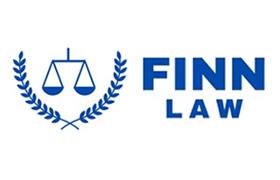 Rexford Criminal Lawyers, New York
Rexford Criminal Lawyers, New York
Sponsored Law Firm
-
 x
x

Click For More Info:
-
Finn Law Offices
12 Sheridan Ave. Albany, NY 12207» view mapAccident & Injury and Criminal Defense Action-Oriented Legal Advocacy
At Finn Law Offices, our attorney relies upon his experience and dedication to protect your rights in a personal injury, employment law, criminal defense or civil rights case.
800-872-6030
Lawyers
1-3 of 3 matches
Accident & Injury, Criminal, Wrongful Death, Personal Injury
Motor Vehicle, Criminal, Car Accident, Accident & Injury



 Ryan M. Finn Albany, NY
Ryan M. Finn Albany, NY AboutFinn Law Offices
AboutFinn Law Offices